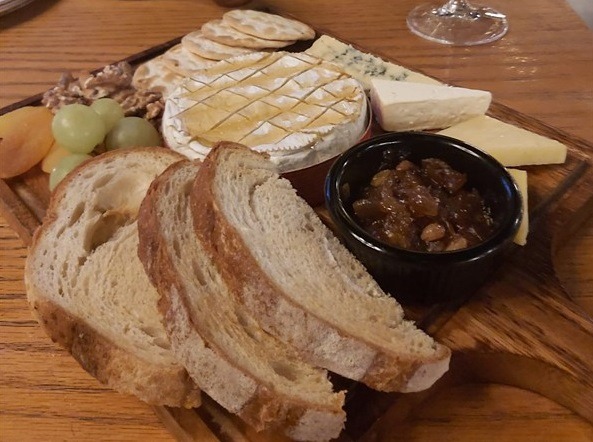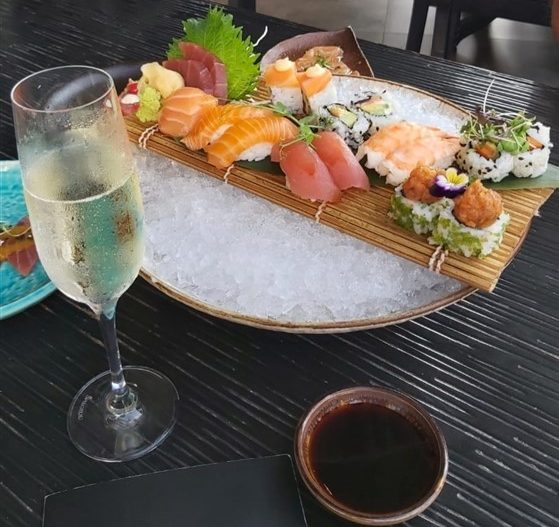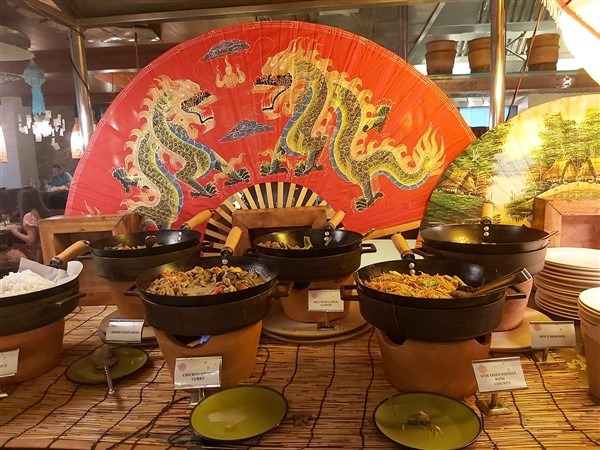Introduction:
In a world where food has transcended mere sustenance to become a cultural phenomenon, the term “foodie” has gained widespread popularity. But what is a foodie? The answer to this question is as diverse and dynamic as the culinary world itself. In this comprehensive exploration, we’ll delve into the multifaceted world of foodies, examining their characteristics, the various types that exist, foodie culture, trends, misconceptions, and what it means to be a foodie and the numerous benefits of embracing this passionate and palate-pleasing lifestyle.

Characteristics of a Foodie
Before we venture into the various types of foodies, let’s begin by unravelling the common characteristics that bind these culinary enthusiasts together.
A. Passion for Food and Culinary Experiences:
At the core of being a foodie lies an unwavering passion for food. Foodies view meals not just as sustenance but as opportunities for delightful experiences. They savour the act of eating and appreciate the artistry that goes into creating a dish.
B. Adventurous Palate and Willingness to Try Diverse Cuisines:
Foodies are known for their adventurous palates. They relish trying new and exotic foods, whether it’s sampling an unusual ingredient, indulging in street food in a foreign country, or experimenting with fusion cuisine.
C. Appreciation for the Art and Science of Cooking:
Foodies understand that cooking is both an art and a science. They appreciate the creativity that chefs bring to the kitchen and the precision required to craft the perfect dish.
D. Knowledge about Ingredients, Flavors, and Food Culture:
Foodies possess an in-depth knowledge of ingredients, flavours, and food culture. They can distinguish between various types of cheese, identify flavour profiles in a dish, and understand the cultural significance of different foods.
E. Love for Food-Related Activities and Events:
Foodies actively seek out food-related activities and events. Whether it’s attending a food festival, enrolling in a cooking class, or organizing a themed dinner party, they find joy in everything food-related.
Types of Foodies
The world of foodies is far from monolithic. It’s a diverse landscape with various types of culinary enthusiasts, each with their own unique approach to the culinary world. Here are some of the prominent types of foodies:
A. Gourmet Foodie:
Gourmet foodies have a refined palate and a penchant for the finer things in life. They appreciate high-quality, luxurious ingredients and dining experiences.
B. Ethnic Foodie:
Ethnic foodies are passionate about exploring the world through its cuisines. They savour dishes from different cultures and seek out authentic flavours.
C. Health-Conscious Foodie:
Health-conscious foodies prioritize nutritious and balanced eating. They focus on clean, wholesome ingredients and are committed to a healthy lifestyle.
D. Home Cook Foodie:
These foodies are chefs in their own right, passionate about creating culinary masterpieces in their home kitchens. They take joy in experimenting with recipes and techniques.
E. Street Foodie:
Street foodies are aficionados of the humble yet delicious offerings found in food carts, markets, and street corners. They relish the flavours of on-the-go eats.
F. Traveling Foodie:
Travelling foodies embark on culinary adventures around the world. They plan their trips around food experiences, seeking out local delicacies and hidden gems.
G. Dessert Connoisseur:
Dessert connoisseurs have a sweet tooth and a deep appreciation for the world of pastries, cakes, and confections. They savour the art of dessert making.
H. The Food Blogger:
Food bloggers share their culinary experiences and expertise with a global audience. They write about food, create recipes, and showcase mouthwatering food photography.
I. The Food Critic:
Food critics are discerning evaluators of restaurant experiences. They offer in-depth reviews of dishes, service, and ambience, guiding others in their dining choices.
J. The Food Enthusiast:
Food enthusiasts are simply passionate about all aspects of food. They may not fit into a specific category but wholeheartedly embrace their love for eating and exploring the culinary world.

Foodie Culture and Trends
The world of foodies is not just about individual passion; it has created a rich foodie culture with evolving trends and influences. Let’s explore some of the significant aspects of foodie culture:
A. The Rise of Food Influencers and Bloggers:
In the age of social media, food influencers and bloggers have risen to prominence. They share their culinary adventures, restaurant reviews, and recipes with their followers, shaping food trends and influencing dining choices.
B. Food Tourism and Culinary Travel:
Food tourism has become a thriving industry. Culinary travellers seek destinations known for their food culture and immerse themselves in local cuisine through food tours and cooking classes.
C. The Farm-to-Table Movement and Sustainability:
Foodies are increasingly conscious of the origins of their food. The farm-to-table movement emphasizes the use of locally sourced, sustainable ingredients, supporting small-scale farmers and producers.
D. Fusion Cuisine and Global Flavors:
Foodies celebrate fusion cuisine that marries diverse culinary traditions. The world’s flavours are at their fingertips, and they appreciate dishes that blend global influences.
E. The Role of Technology in the Foodie World:
Technology plays a significant role in the foodie world. From food delivery apps to recipe-sharing websites, technology has revolutionized how foodies discover, prepare, and enjoy food.
Misconceptions and Criticisms
While being a foodie is a delightful and enriching experience, it’s not without its share of misconceptions and criticisms:
A. The Perception of Elitism:
Some view foodies as elitist, associating them with expensive dining and exclusive ingredients. In reality, foodies come from diverse backgrounds, and their passion is inclusive.
B. Overindulgence and Health Concerns:
Critics may argue that foodies prioritize indulgence over health. However, many foodies balance their love for decadent dishes with a commitment to a balanced diet.
C. Social Media and the “Instagrammable” Culture:
The prevalence of food photos on social media platforms has led to the perception that foodies prioritize aesthetics over taste. In truth, foodies appreciate both the visual and gustatory aspects of a dish.
D. Commercialization of Foodie Culture:
There are concerns about the commercialization of foodie culture, with businesses capitalizing on the trend. However, many foodies remain committed to authentic culinary experiences.
Benefits of Being a Foodie
Being a foodie offers numerous benefits, extending beyond personal enjoyment. Let’s explore some of the positive aspects:
A. Cultural Awareness and Appreciation: Foodies gain cultural awareness and appreciation by exploring diverse cuisines and understanding the significance of different foods in various cultures.
B. Social Connections and Food Community: Foodies often connect with like-minded individuals who share their passion. This sense of community fosters social connections and the exchange of culinary knowledge.
C. Personal Growth and Exploration: Exploring new flavours, cuisines, and cooking techniques fosters personal growth. Foodies continually challenge their taste buds and culinary skills.
D. Advocacy for Food Sustainability and Ethical Dining: Many foodies advocate for sustainable and ethical food practices. They support local producers and raise awareness about food-related issues.
Conclusion
In conclusion, the term “foodie” encompasses a diverse and passionate community of individuals who share a profound love for all things culinary. It’s a term that has evolved with the changing food landscape and the rise of technology and social media. Embracing the foodie lifestyle means savouring the joy of food and culinary experiences while connecting with others who share this enthusiasm.
Call to Action
To fully immerse yourself in the world of foodies, consider the following actions:
A. Engage with the Foodie Community: Join food-related forums, Facebook groups, or foodie communities where you can connect with others who share your passion.
B. Share Your Thoughts and Experiences: Share your foodie experiences, culinary experiments, and favourite food destinations by engaging in conversations with fellow food enthusiasts.
C. Stay Updated with the Latest Food Trends: Find a good food blog and keep an eye on evolving food trends, explore new culinary adventures, and remain open to the ever-changing world of food.
Becoming a foodie is more than just a label; it’s a flavorful journey filled with diverse tastes, cultural discoveries, and a sense of community. As you embark on this culinary adventure, remember that being a foodie is not about being exclusive or elitist; it’s about celebrating the joys of food and sharing those experiences with others. So, let your taste buds guide you through the intricate and delightful world of food and savour every moment of your culinary exploration.









